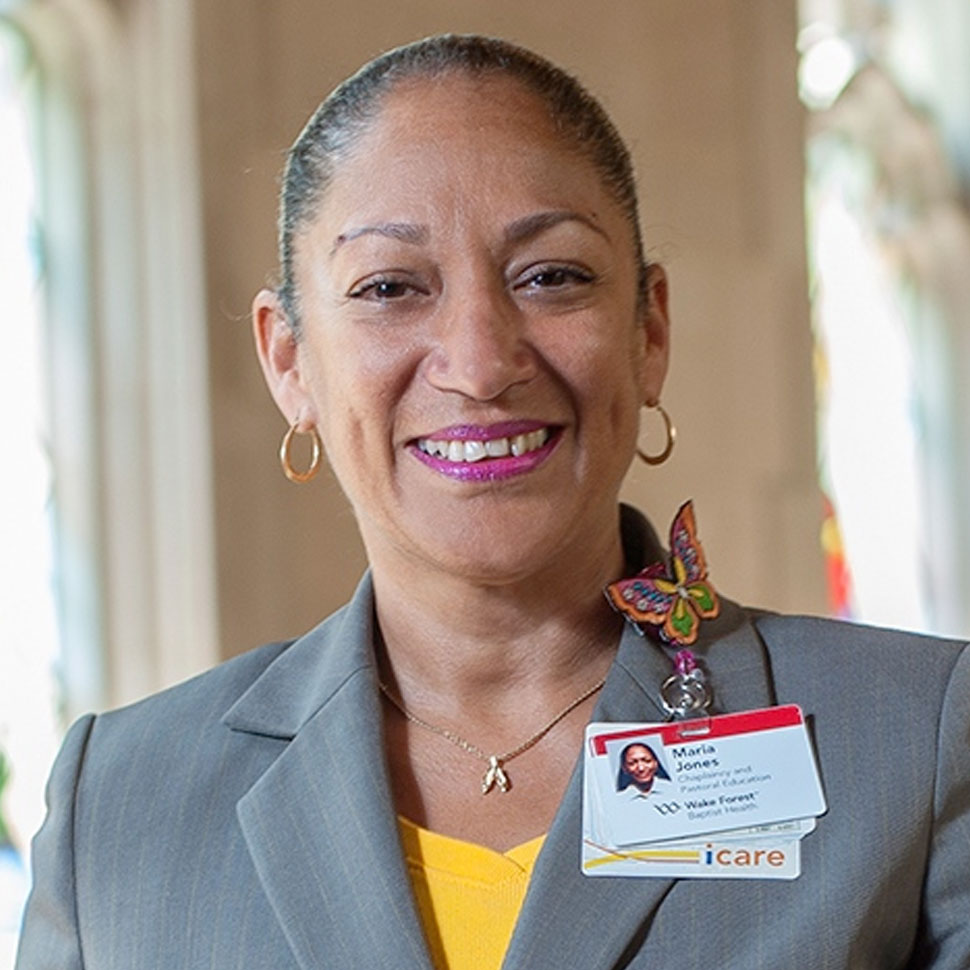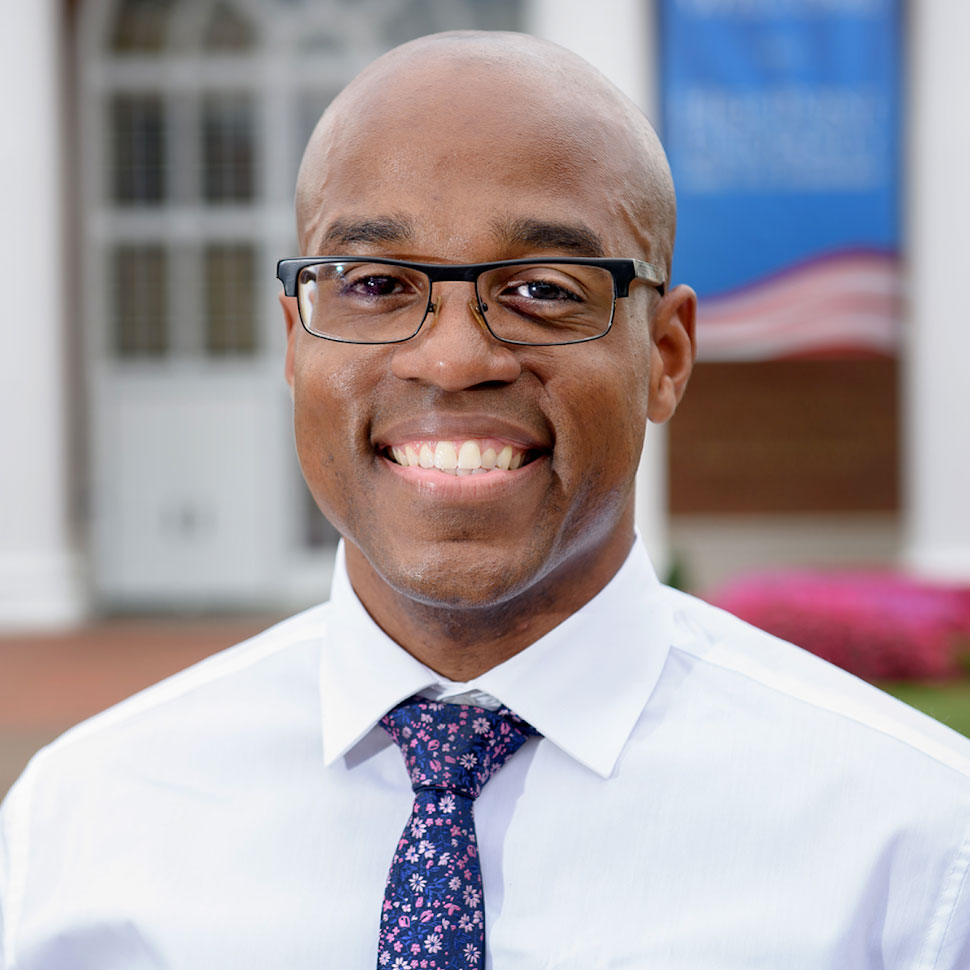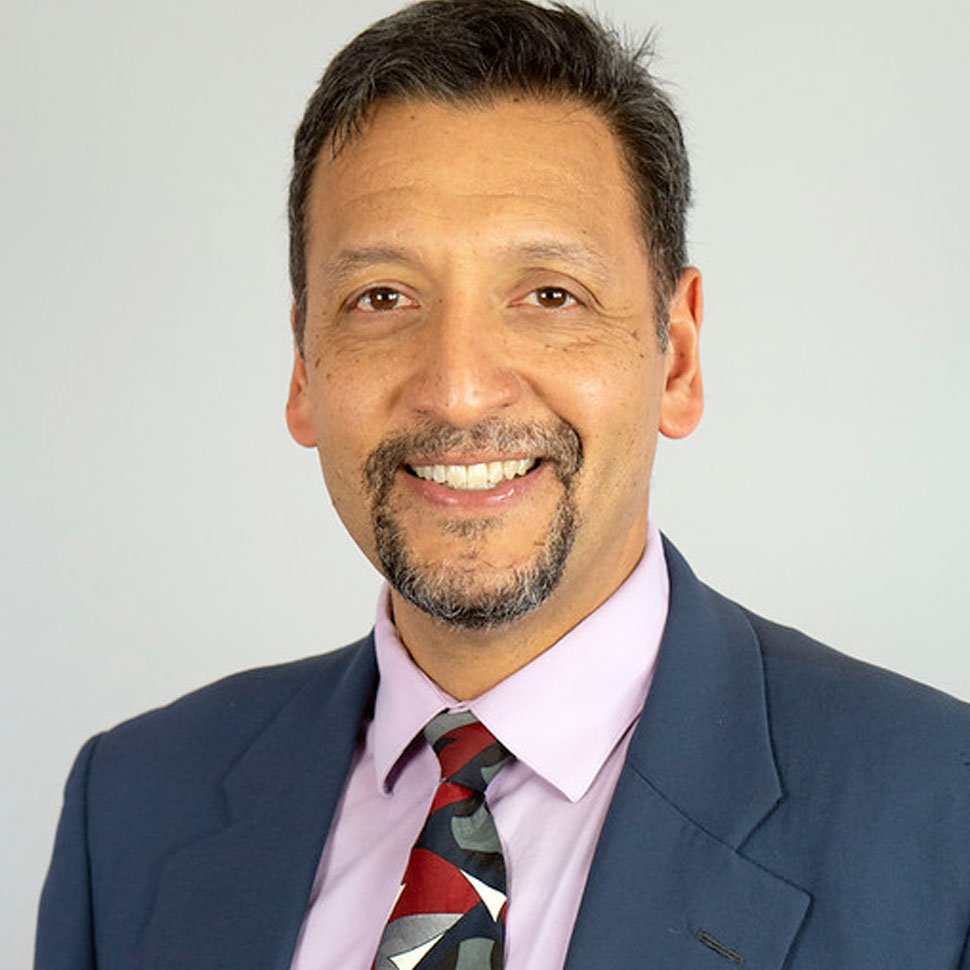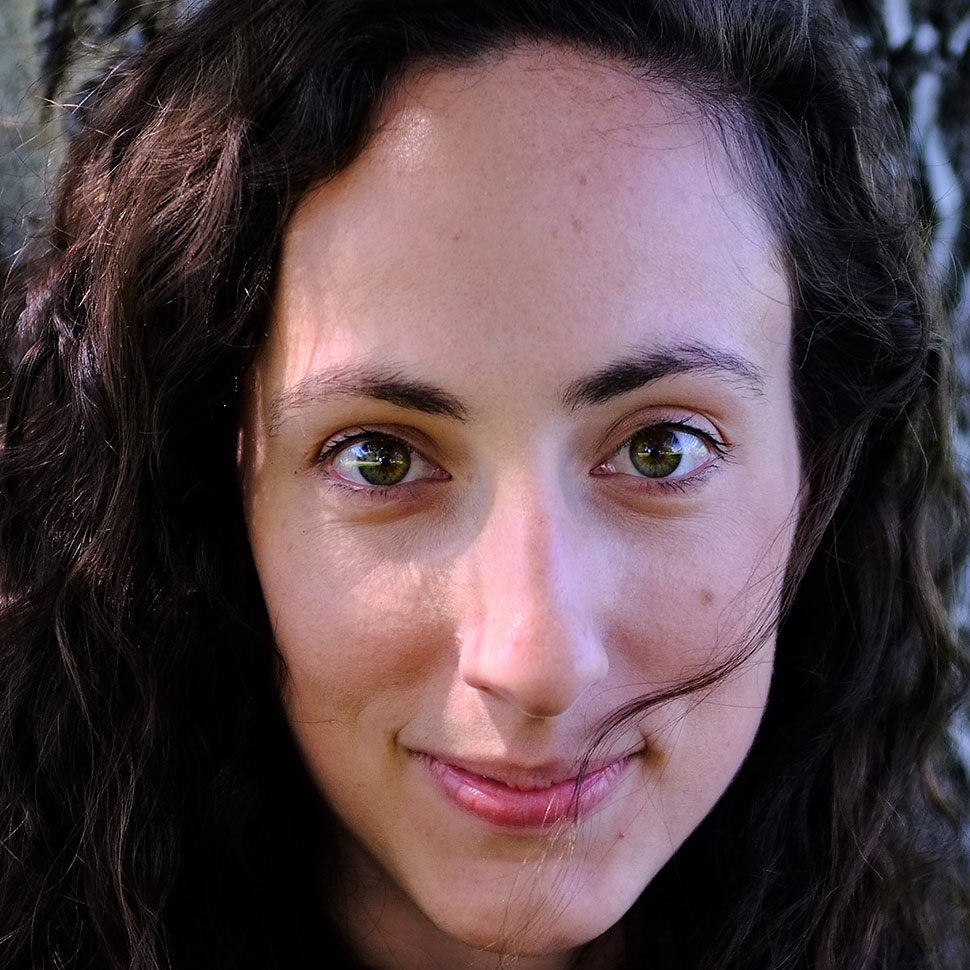Vocational Pathway: Chaplaincy

Preparing for Chaplaincy
The Discernment Process
Are you considering pursuing a life in chaplaincy? The best way to discern whether or not you want to pursue chaplaincy is gain practical experience through Clinical Pastoral Education.
Here are the different levels of Clinical Pastoral Education that you can pursue. Note: In order to apply for a residency, you must have completed 1 unit of CPE. In order to become a certified chaplain, you will need at least 4 units of clinical pastoral education.
Unit I Internship:
- Residency I
- Residency II
- Certified Education I
- Certified Education II
Preparation Guide
It is important to have a strategic plan while pursuing the M.Div. Following this checklist will help you account for all the things you need to do and engage.
- Take Pastoral Care or Other Relational Care Courses. Since chaplaincy is largely driven by providing relational care to persons, taking these classes early on in your divinity school career can help you discern if this is the type of work that energizes you. Please note that some students find taking the course Pastoral Care after having some experience in providing spiritual and relational care is more beneficial. Talk with Dr. Jensen to see when it would be best to take Pastoral Care.
- Complete a summer unit of Clinical Pastoral Education. Clinical Pastoral Education (CPE) allows students to gain spiritual and relational care experience, experience in crisis situations, and fosters a better understanding of how our personal stories shape our ministry practices. Each year the School of Divinity hosts a CPE Day where various CPE programs gather to talk to students. Besides the great professional experience CPE provides, CPE is also worth 5 credits. The application process for CPE is lengthy, requires supplemental materials, and can be a competitive process. As such, if a summer unit of CPE is an option for you, then you should have your application completed as soon as possible. If chaplaincy is a serious option for you, completing a summer unit of CPE allows you to understand what full-time chaplaincy feels like.
- Research requirements for Board Certification. Many chaplains have to be board certified. You can explore the requirements for certification at https://www.acpe.edu/.
- Research CPE Residency Programs. In order to become a board-certified chaplain, you will need 4-5 unites of CPE. Hence, after you have completed your first unit you can apply for a full-time residency program for post-graduation. There are thousands of CPE Residency programs across the United States and a quick google search can initiate the search process. You can also look for CPE Residency programs on the ACPE website.
- Consider these important questions when looking at Residency programs. What populations do you prefer to work with? Children? Elderly? What setting? Trauma centers? Extended care facilities? What geographic location do you want to work in? What specialized programs (i.e. mental health, neonatal)? Become clear on your discipline and pastoral goals and what programs fit those goals. How can these programs help you achieve your board-certified competencies? Does your residency program support your preparation for board certification?
- Begin applying for CPE residency programs. Once you have found residency programs that you are interested in, begin putting together the application materials. You need to work with your professors and mentors to make sure all supplemental materials are completed in a satisfactory manner.
- Spiritual Practices: Figure out who you are and what self-care practices allow you to be your true and full self. Many congregational ministers experience a feeling of burnout in their first couple years of ministry. What practices can you develop now that will help you work through the stress of ministry?
Alumni Profiles

What is your Denomination or faith tradition?
I am ordained and endorsed with the United Church of Christ.
What type of setting do you serve in? And what is your title/your role?
My primary ministry setting is Wake Forest Baptist Health, a Level I Trauma Academic Medical Center, where I serve as the Chaplain for Staff Support. My Secondary ministry setting is Green Street United Methodist Church where I serve as the Associate Pastor.
What do you enjoy the most about your work?
What I enjoy the most about my ministry is the privilege to walk with and accompany persons going through difficult life situations. Holding sacred space for meaning making while building relationships is one of the greatest joys my ministry brings.
Why did you choose to pursue chaplaincy? And, how did that decision relate to your understanding of vocation?
The truth is that chaplaincy chose me. The first time I witnessed the work of a chaplain was in 1973 when my father was in a V.A. hospital in Puerto Rico preparing the family for his own end of life. It was then that I received the gift of compassionate spiritual care from a hospital chaplain. In was as an adult that I was able to trace my call to chaplaincy to that day in my father’s V.A. hospital room so many years earlier.
Were there any experiences (classes, internships, etc.) at Wake Forest University School of Divinity that have been helpful for you in chaplaincy?
Absolutely! Pastoral Care with Dr. Mark Jensen, Art of Ministry I & II with Dean Jill Crainshaw and Dr. Melissa Clodfelter. In addition, my internship with Chaplain Tim Auman was very formative and his mentorship still informs my work today.
What wisdom would you give to students considering chaplaincy? I will say with all honesty that chaplaincy is hard work– there is nothing romantic about this work — but my goodness — it is so rewarding and life giving. I cannot imagine doing anything else at this point in my life. It is truly a gift and a privilege to serve in this vocation – I am humbled and grateful.

What is your Denomination or faith tradition?
I am an Episcopalian
What type of setting do you serve in? And what is your title/your role?
My title and role is Chaplain. Currently, I am completing a Clinical Pastoral Education (CPE) residency at Northside Hospital in Atlanta, GA. My clinical assignments have included but are not limited to the Emergency Department, Intensive Care Unit, Bariatric Surgery, General Surgery, and General Medicine.
What do you enjoy the most about your work?
What I enjoy most about my work is that I am invited to be a part of the most intimate and holy moments in people’s lives. Often, this puts me in relationship with a diverse population of people whose social location, cultural context, and/or theology are unlike mine. It is a genuine honor to explore those contexts as I provide spiritual and emotional support staff, patients, their families, and caregivers.
Why did you choose to pursue chaplaincy? And, how did that decision relate to your understanding of vocation?
In many ways, Chaplaincy chose me. It wasn’t until I attended Divinity School that I became aware of Chaplaincy as a career path. I felt a strong sense of call to ministry at a very young age, but the framework I had for ministry and spiritual leadership was limited. I discovered Chaplaincy as a vocation through Pathways, a series of workshops and panel discussions for vocational discernment at Wake Forest School of Divinity. The shared stories and experiences of the Chaplains on the panel for Chaplaincy resonated with my sense of call to do justice, love mercy, and walk humbly with God. After completing my first unit of CPE, I knew that I had found a career path that demanded creativity, challenged me, and welcomed my full authentic self.
Were there any experiences (classes, internships, etc.) at Wake Forest University School of Divinity that have been helpful for you in chaplaincy?
At the risk of sounding cliché, every class, internship, difficult conversation, theological reflection, assignment, worship service, and guest lecture at Wake Forest University School of Divinity helped prepare me to become a chaplain. I use the skills I learned from being a part of the worship committee as I prepare rituals for mothers who have lost a baby. I use the knowledge of my theological education to explore the theology of my patients as they make meaning of their suffering. I draw upon the difficult conversations I had with peers as well as the experience of contextual education courses as I affirm dignity, honor the humanity, and advocate for patients and staff. I discern Presence in the room as I hold space for grief and loss because of the way my mentors and professors nurtured the sacred in me. Lastly, I am confident in my pastoral authority because of a community that welcomed and affirmed me.
What wisdom would you give to students considering chaplaincy?
Aside from the obvious fact that If you are considering chaplaincy as a career path you must do CPE (clinical pastoral education), the wisdom I’d give to students considering chaplaincy is to decide to risk transformation. I believe transformation is the process of discernment that informs vocation. Try new things. Faithfully explore spiritual and faith traditions outside of your own. Allow yourself to be seen and known as you are. Get yourself a counselor! Find you a spiritual director! In doing so, you’ll discover who you are, why you are the way you are, and who you are becoming. It is with that information you know the direction in which to head.

What is your Denomination or faith tradition?
Roman Catholic
What type of setting do you serve in? And what is your title/your role?
I serve in my hometown hospital, Carolinas Healthcare System Blue Ridge (CHS Blue Ridge), which is part of a larger hospital system (Atrium Health) based out of Charlotte, NC. It’s a relatively small hospital, about 140 bed capacity, with an ED, Telemetry, Med Surg, Behavioral Health, and Family Center units. My title is Chaplain.
What do you enjoy the most about your work?
The diverse stories of suffering and hope I hear from patients, their families, and hospital staff, and my role in being on the team providing for their well-being.
Why did you choose to pursue chaplaincy? And, how did that decision relate to your understanding of vocation?
I learned about hospital chaplaincy while in divinity school. I didn’t have a clear career path before going in. When I did my CPE internship, I realized that the gifts I had for listening, talking, and being with people from diverse backgrounds was a good fit with the role of hospital chaplain.
Were there any experiences (classes, internships, etc.) at Wake Forest University School of Divinity that have been helpful for you in chaplaincy?
The CPE program at Wake Forest Baptist Medical Center, beginning with the pastoral care classes I took at the Div school, through to the internship and residency at the hospital, prepared me very well for doing this work.
What wisdom would you give to students considering chaplaincy?
Work toward knowing, being comfortable with and loving who you are, which is the greatest gift you can bring to encounters in a hospital setting.

What is your Denomination or faith tradition?
I am affiliated with the Alliance of Baptists as an endorsed chaplain. I was ordained in May 2016 by Knollwood Baptist Church in Winston-Salem.
What type of setting do you serve in? And what is your title/your role?
I am a staff chaplain at the University of Colorado Hospital in Aurora, CO, a suburb of Denver. Part of the UCHealth System, University of Colorado Hospital is the only quaternary care academic medical center in the Rocky Mountain region. I completed two years of CPE residency, the second year specializing in palliative care, and then was hired to stay with the Department of Spiritual Care Services as a staff chaplain. I currently cover the hematology service, working closely with medical and psychosocial colleagues to provide holistic support for blood cancer patients.
What do you enjoy the most about your work?
I love the variety and diversity of my work as a spiritual caregiver. This is in part based on my setting at a large teaching hospital with a CPE program. Along with my clinical duties, I am able to mentor CPE students, write for campus publications, teach formally and informally about the role of spirituality in healthcare, facilitate reflective writing sessions for medical students, etc. I can promote the spiritual wellbeing of our healthcare community as a whole, along with its individual members.
And then there is the diversity of encounter with patients and their families. I am ever more aware of the complex ways we humans seek meaning, purpose, community, and connection. I like to think of spiritual care as entering into a space of authenticity where we come a bit closer to seeing one another with unveiled faces. Perhaps the unveiled face is one in which the individual has been able to tell their story and see it with fresh eyes. I feel God working through me when I give people the opportunity to be seen and heard, to know that they are worthwhile and that our relationship, even if brief, is sacred.
Why did you choose to pursue chaplaincy? And, how did that decision relate to your understanding of vocation?
I remember hearing about Clinical Pastoral Education during orientation to divinity school, and being fascinated by my classmates’ enthusiasm. I heard over and over again that CPE was an experience for growing into your own identity within a community of care. Some thrived, some struggled, but none would trade the experience. After a summer unit of CPE between second and third year, my voice joined that choir of praise! CPE residency felt like a way to “trust the next step.” I was not certain about my long term vocational future, but I desired more of the CPE philosophy and methodology, since I could credit it for a tremendous amount of personal and professional growth. A few years later, I can now say with clarity that I have found a vocation in chaplaincy. Perhaps a story best illustrates my ongoing sense of call…
The night I met Cora in the cardiac intensive care unit she was anxious, physically and spiritually, about the state of her heart. We spoke of the courage she would need for the journey ahead. We formed a connection that night that continued through device placements, hospital readmissions, and eventually a successful heart transplant. At one point along her journey I signed her post-transplant heart pillow with the blessing, “May you always find the courage you need for wholehearted living.” At another point, she offered me a profound blessing. She asked if we could pray, and I was startled by how fervently she wanted to offer the prayer. She prayed for her healing process, and also for our connection. She held my hands, she parted a veil, and she prayed for me. Later that night I realized it was the one-year anniversary of my ordination. Her prayer became a renewal of the Laying on of Hands ritual as she ordained me anew in that particular time and place. She reminded me of my call, proclaimed then and echoing now: To minister in a dynamic and interconnected world, to work for the healing and wholeness of all people and our common home, and to live and love with an embodied awareness of divine presence in the world.
Were there any experiences (classes, internships, etc.) at Wake Forest University School of Divinity that have been helpful for you in chaplaincy?
The Art of Ministry program most significantly shaped my vocation in chaplaincy. My internships included Greensboro Urban Ministry, Knollwood Baptist Church, and City With Dwellings. In all of these settings I was most drawn to intimate relational encounter. The structured reflection of Art of Ministry helped me name and embrace my ministerial identity.
I will also be forever grateful for the opportunity to study the Gospel of John with Dean O’Day. John, through the vitality of Dean O’Day’s teaching, awakened in me the incarnational theology of our Christian tradition. Each day at the hospital reveals anew the power of “Word become flesh.”
What wisdom would you give to students considering chaplaincy?
Divinity school is a precious time to ground yourself in your own tradition while also expanding your worldview. Be prepared to grow these roots and branches in chaplaincy. How do you understand spirituality broadly defined? How will you minister with integrity to people from other faith traditions or none at all? Your geographical and institutional setting will affect the type of spiritual care you may provide, and the possibilities are growing. I think our field is uniquely positioned to influence how people relate to religion and spirituality in an increasingly pluralistic world; I hope this prospect excites you too!

